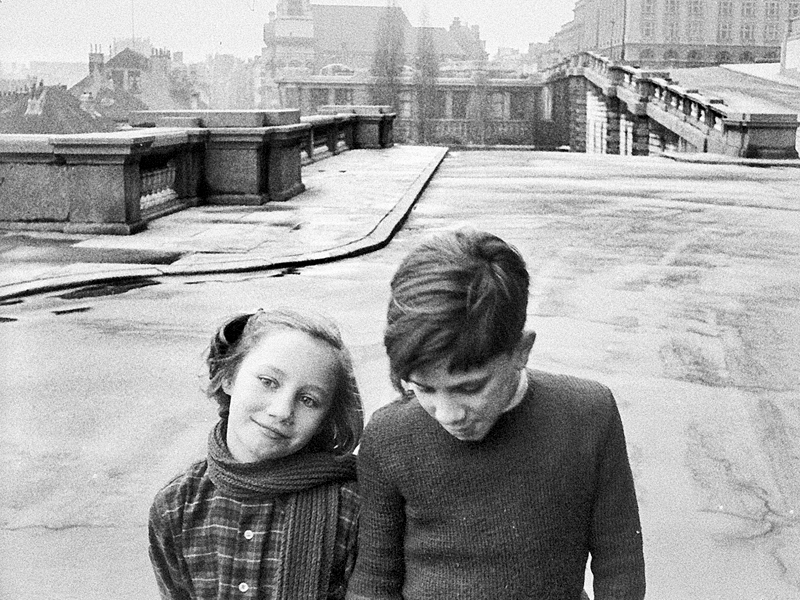Week 2/2024
On Wednesday night, Kinoautomat organizes a screening of Jonas Mekas’ Reminiscences of a Journey to Lithuania (1972) at KASKcinema, preceded by an introduction by film lecturer Wiebe Copman. Mekas is regarded by many as the grandfather of American avant-garde cinema. He arrived in America in 1949 together with his brother. They were former prisoners of German labour camps who’d been exiled from their Lithuanian hometown. Upon arrival in the US, Mekas began documenting his life with a camera. This narrative documentary is a compelling testimony of a divided family and their long-delayed reunion.
As Cinema Nova’s leasing term comes to an end, Supernova Coop aims to acquire a long-term lease of the building with the help of their loyal attendees, who can all become shareholders. To achieve their goal, Nova launches a new program, kicking off on Thursday with a screening of Jean Harlez’s Le chantier des gosses (1970). A Belgian made, neo-realist film about Brussels in the 1950s, giving centre stage to the grimy cul-de-sacs of the populous district of Les Marolles. Children play in the wasteland, left gaping after the fall of a V1 missile at the end of the Second World War, surrounded by old shacks and blind fences. Harlez will be present to introduce the screening, alongside his partner Marcelle Dumont, who wrote the dialogues for the film.
In light of the second part of the Jean-Marie Straub and Danièle Huillet retrospective this semester, the last screening on this week’s list features a double bill at CINEMATEK on Thursday: Incantati (2003) and Schwarze Sünde (1989). The production of Umiliati (2003) resulted in several films including Incantati, which serves as an alternative ending of said film (Balthazar). After their earlier film The Death of Empedocles, Straub and Huillet return to Etna and again to Friedrich Hölderlin’s Empedocles in Schwarze Sünde. It is a dark political text, and the characters that have remained walk on black ashes like ghosts of another world.




